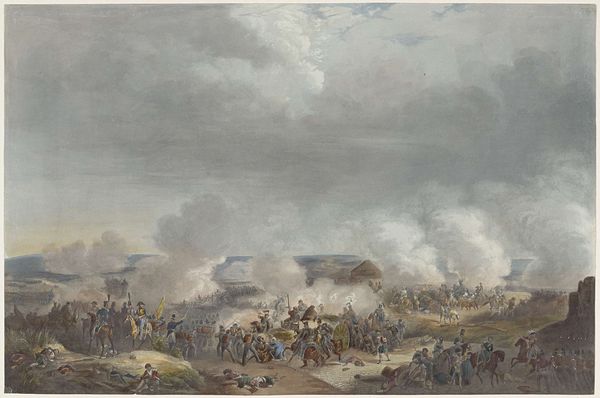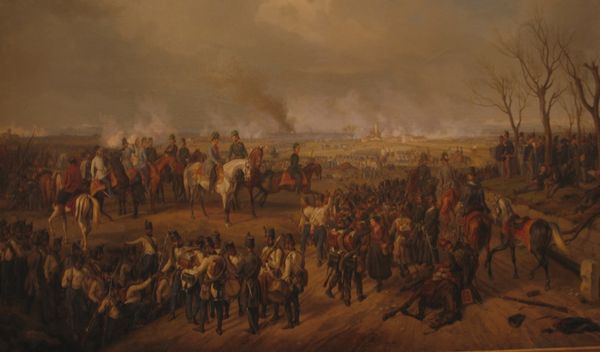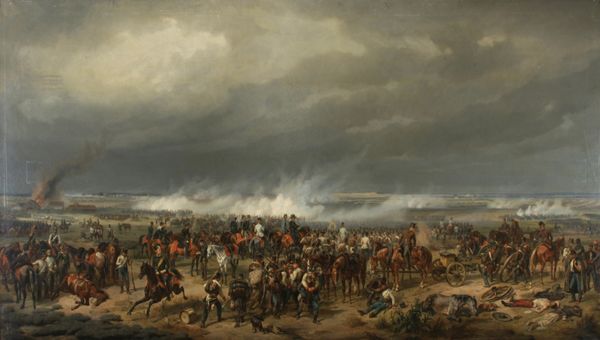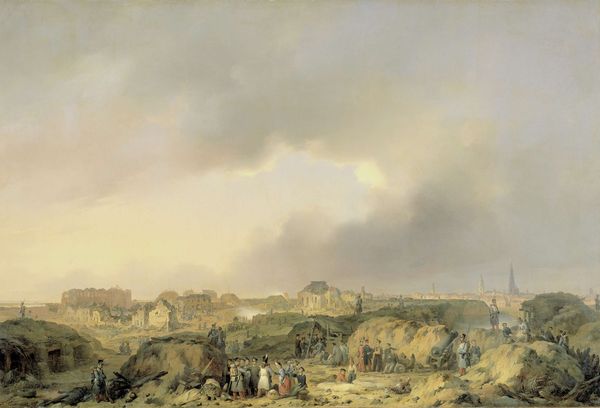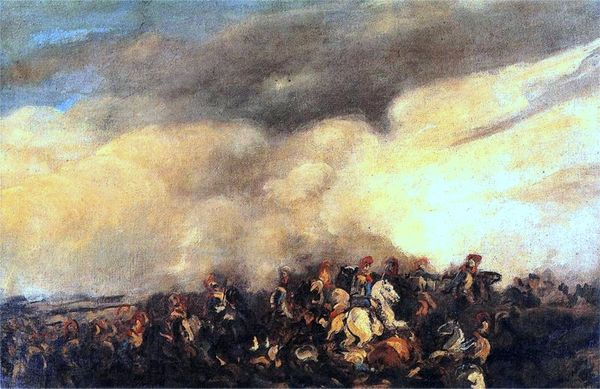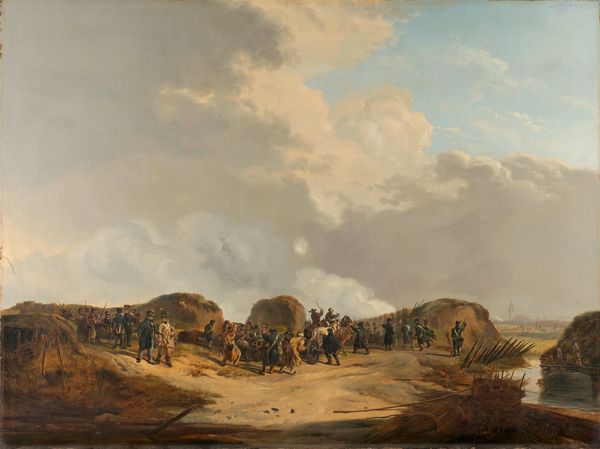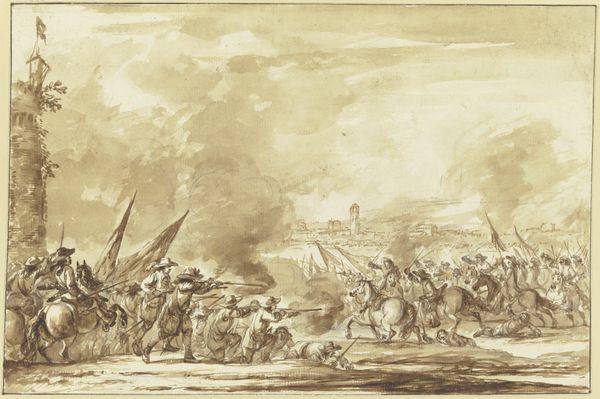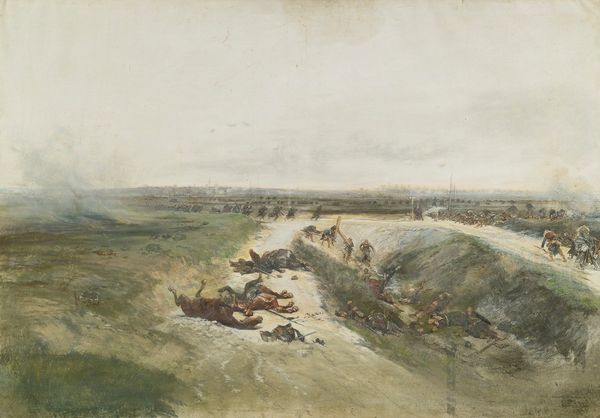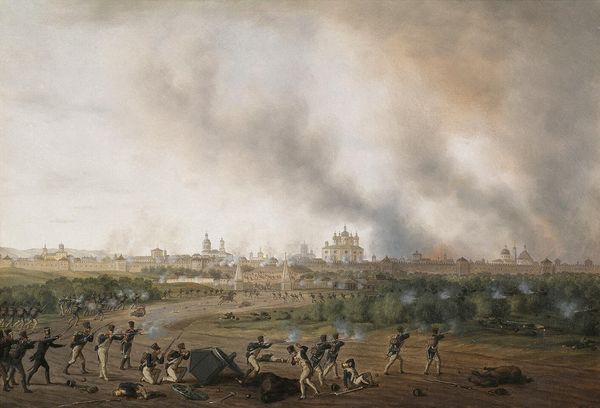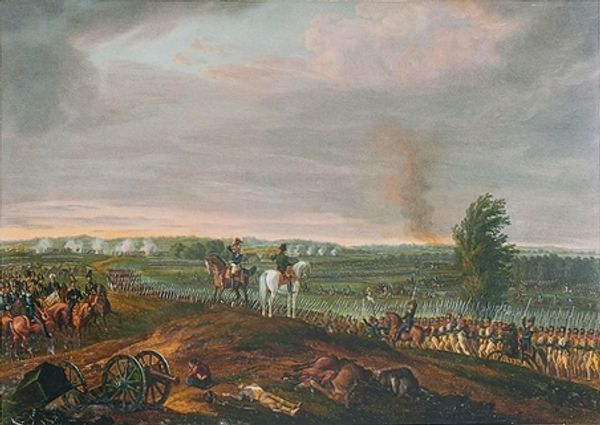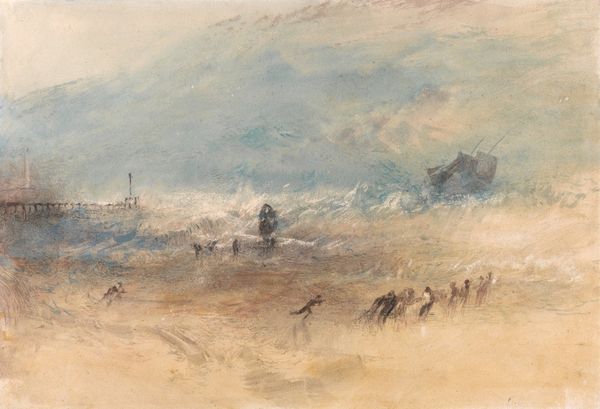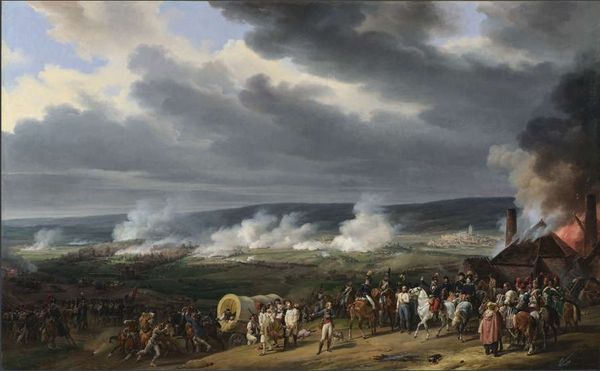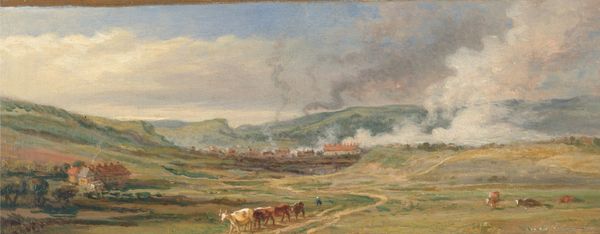
painting, oil-paint
#
painting
#
oil-paint
#
landscape
#
oil painting
#
romanticism
#
history-painting
Dimensions: height 60 cm, width 80 cm, thickness 4.2 cm, depth 9.2 cm
Copyright: Rijks Museum: Open Domain
Editor: So, this is Pieter Gerardus van Os's "The Bombardment of Naarden, April 1814," painted in oil on canvas. It definitely has a bleak, sort of tense atmosphere, like something important is happening just outside the frame. How would you interpret this work? Curator: I see this as a powerful statement on conflict, situating it within the tumultuous period of Dutch history as it transitioned away from Napoleonic rule. Note how van Os avoids glorifying warfare, opting instead to depict the almost mundane actions of soldiers, with smoke and clouds blending the line between humanity and devastation. Consider, whose perspectives are visible and invisible here? Editor: Well, we see the soldiers very clearly, but…the town of Naarden and its people are distant, almost obscured by the smoke. Curator: Precisely. Van Os emphasizes the experience of those enacting the violence, rather than its direct impact on the community. The painting invites us to question the social structures that enable such events, encouraging critical analysis. Are the soldiers portrayed heroically, or merely as instruments of power? Editor: I guess... not heroically. They seem anonymous, almost like part of the landscape itself. Curator: Exactly. Their facelessness removes any sense of individual agency, prompting viewers to consider broader implications concerning collective violence and state power, and, really, who controls these narratives, then and now? Editor: So, it's less about celebrating a battle and more about questioning the whole system that allows it to happen? Curator: Absolutely. This artwork speaks to a larger historical narrative of societal upheaval and its lasting effects, prompting critical engagement with issues of power, representation, and historical memory, not to celebrate a war, but perhaps as a stark warning. Editor: That's really given me a lot to think about. Thanks, I didn't really appreciate all of the layered, nuanced socio-political comments at play here.
Comments
No comments
Be the first to comment and join the conversation on the ultimate creative platform.
